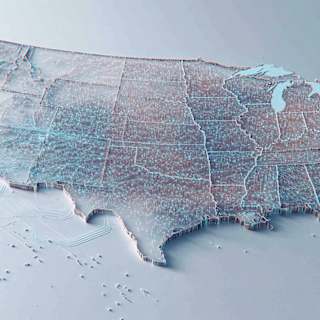- Employment Protections Expand Nationwide
- Technology and Consumer Safeguards
- Safety Measures and Social Policy
Dozens of new state laws take effect across the United States on Tuesday, addressing workplace protections, technology regulation, and consumer rights as legislators respond to evolving social and economic challenges.
The July 1 effective date marks a traditional midyear implementation period for legislation passed during 2025 state sessions, with laws spanning from artificial intelligence oversight to minimum wage increases affecting millions of Americans.

Several states are strengthening worker protections, with Alaska implementing a $13 per hour minimum wage and requiring employers to provide one hour of paid sick leave for every 30 hours worked1. Virginia will expand its non-compete agreement ban to cover all employees earning less than $76,081 annually or those entitled to overtime pay under federal law12.
Washington, D.C., will raise its minimum wage to $17.95 per hour, with tipped employees seeing increases to $12.00 per hour1. Vermont joins the growing number of states requiring pay transparency, mandating that employers with five or more workers include wage ranges in job advertisements12.
In California, Los Angeles County's Fair Workweek Ordinance takes effect, requiring retail businesses with at least 300 employees worldwide to provide advance notice of schedule changes and premium pay for last-minute adjustments1.
States are addressing digital-age concerns with new technology regulations. Nevada explicitly prohibits public schools from replacing counselors or psychologists with artificial intelligence1, while Virginia requires content creators to compensate children under 16 featured in online videos and establish trust accounts for their earnings2.
California strengthens consumer protections with Assembly Bill 2863, requiring businesses to obtain "affirmative consent" before renewing paid subscriptions, moving beyond the current system where services continue until explicitly canceled3. The state also targets retail theft with Senate Bill 1144, requiring online marketplaces like eBay and Facebook Marketplace to collect information on high-volume sellers and alert law enforcement about suspected stolen goods3.
Transportation safety receives attention as Nevada authorizes school bus cameras to catch drivers running stop signs, though violations won't result in license points1. Virginia implements new seatbelt requirements for all adult passengers, expanding beyond the current front-seat-only mandate2.
Maryland introduces cannabis regulation limits, prohibiting products marketed as containing more than 0.5 milligrams of THC per serving or 2.5 milligrams per package3. The state also advances environmental policy with the Transportation and Climate Alignment Act, requiring greenhouse gas impact assessments for highway expansion projects3.
The legislative activity reflects states' continued role as policy laboratories, with many measures potentially influencing federal discussions on employment, technology, and consumer protection.



